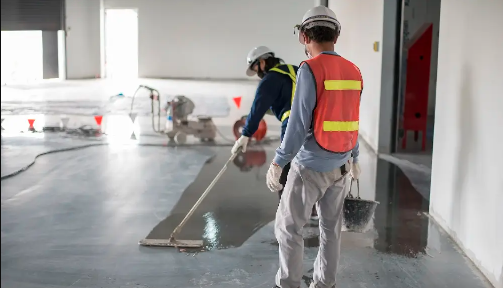Zinc chromate vs epoxy primer: A Comprehensive Overview

Introduction
Zinc chromate vs epoxy primer combines the benefits of zinc-based corrosion protection with the superior durability and adhesion properties of epoxy. This hybrid primer is designed to offer enhanced performance for metal surfaces, making it a popular choice for various industrial, automotive, and marine applications. This guide provides a detailed look at zinc chromate vs epoxy primers, including their advantages, features, and ideal applications.
What is Zinc chromate vs epoxy primer?
A zinc chromate vs epoxy primer is a type of coating that combines zinc and epoxy resins to create a primer that offers both exceptional corrosion resistance and strong adhesion. The zinc component provides cathodic protection, while the epoxy resin enhances durability and chemical resistance.
Benefits of Zinc chromate vs epoxy primer
- Superior Corrosion Resistance: The zinc content in the primer offers cathodic protection by corroding before the underlying metal, thus preventing rust and corrosion. This makes zinc chromate vs epoxy primer highly effective in protecting metal surfaces from harsh environmental conditions.
- Enhanced Adhesion: Epoxy resins provide excellent adhesion to various substrates, ensuring that subsequent topcoats bond well. This improves the overall durability and performance of the coating system.
- Durability: Zinc chromate vs epoxy primers are known for their robustness. They form a tough, protective layer that resists abrasion and impacts, making them suitable for high-stress environments.
- Chemical Resistance: The epoxy component gives the primer excellent resistance to chemicals, including solvents, oils, and acids. This makes it ideal for use in environments where chemical exposure is a concern.
- Long-Lasting Protection: The combination of zinc and epoxy results in a primer that provides long-lasting protection and performance, reducing the need for frequent maintenance or reapplication.
Read also: Maximizing Efficiency: How Metal Framing Companies Use Technology
Key Features
- Corrosion Protection: The zinc component acts as a sacrificial anode, offering effective protection against rust and corrosion. This is especially important in marine and industrial applications.
- Adhesion: Epoxy resins ensure strong adhesion to metal surfaces, improving the bonding of topcoats and enhancing the overall finish.
- Durability: The primer is designed to withstand harsh conditions, including abrasion and impact, making it suitable for heavy-duty applications.
- Chemical Resistance: The epoxy component provides resistance to a range of chemicals, enhancing the primer’s performance in challenging environments.
- Application: Zinc chromate vs epoxy primers are generally applied using conventional methods such as spraying or brushing. They may require specific conditions, such as controlled temperature and humidity, to achieve optimal results.
Applications
- Industrial Coatings: Used in industrial settings where metal surfaces are exposed to harsh environments and chemicals. Ideal for machinery, structural steel, and equipment.
- Marine Environments: Suitable for use on boats, ships, and other marine structures due to its excellent corrosion resistance and ability to withstand saltwater exposure.
- Automotive Industry: Applied to vehicles and equipment to protect against rust and corrosion, providing a durable base for topcoats.
- Infrastructure: Used on bridges, pipelines, and other infrastructure projects where long-term durability and protection are critical.
Comparison to Other Primers
| Feature | Zinc chromate vs epoxy primer | Zinc Chromate Primer | Epoxy Primer |
| Corrosion Resistance | Superior, combines zinc protection with epoxy durability | Effective, but less durable in severe conditions | Excellent, ideal for harsh environments |
| Chemical Resistance | Excellent | Limited | Excellent, high resistance to chemicals |
| Durability | High | Moderate | Very high, long-lasting |
| Adhesion | Excellent | Good | Superior, excellent bonding |
| Cost | Higher than zinc chromate, but generally lower than high-end epoxies | Generally lower | Higher |
| Health and Safety | Safer than zinc chromate | Contains toxic chromium compounds, requires safety measures | Safer, no chromium compounds |
| Environmental Impact | Generally less environmental impact | Potential environmental concerns | Generally less environmental impact |
Conclusion
Zinc chromate vs epoxy primer offers a blend of corrosion protection and durability, making it an excellent choice for demanding applications. Its combination of zinc-based protection and epoxy’s robust properties provides long-lasting performance and resistance to harsh conditions. Ideal for industrial, marine, and automotive use, zinc chromate vs epoxy primer ensures strong zinc chromate vs epoxy primer adhesion and protection against rust, chemicals, and abrasion. By considering your specific application needs, you can select the right primer to achieve optimal results and maintain the integrity of your metal surfaces.




